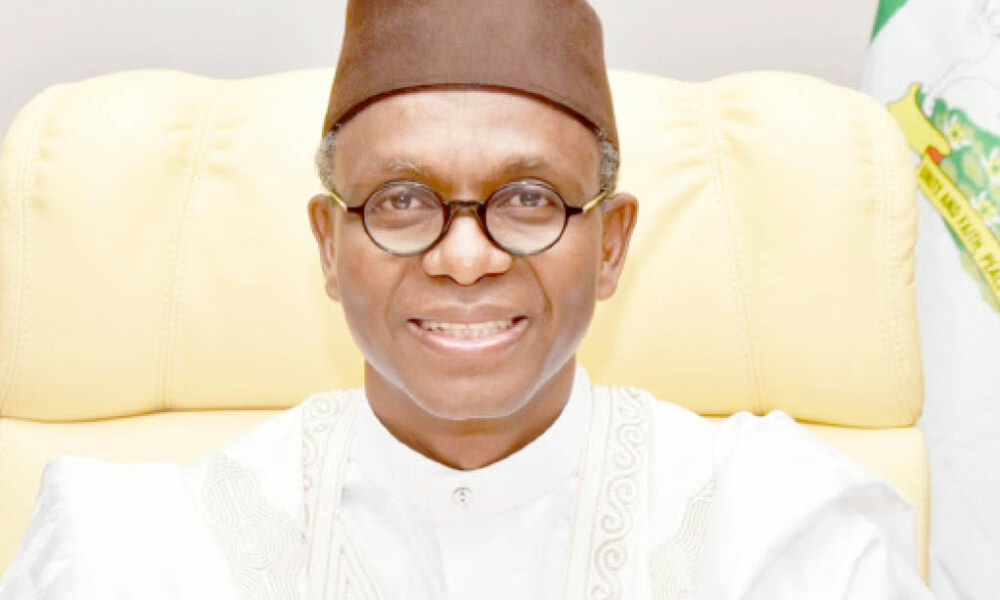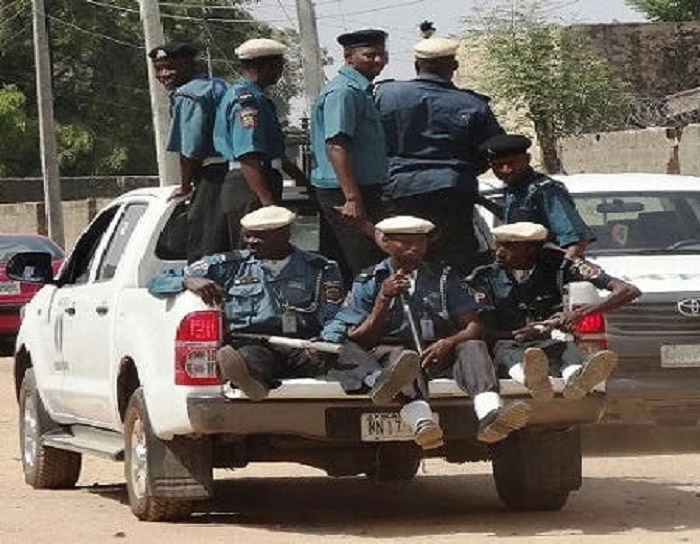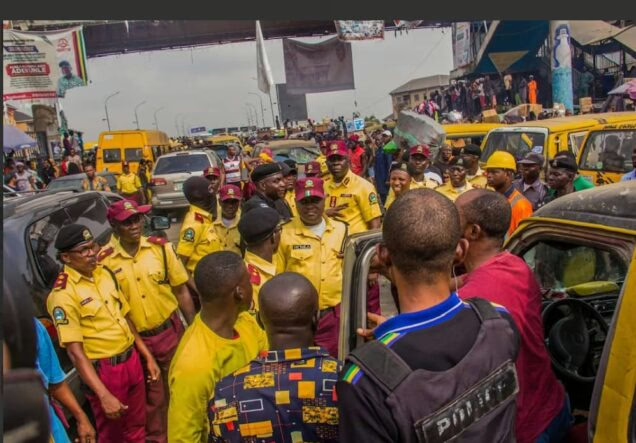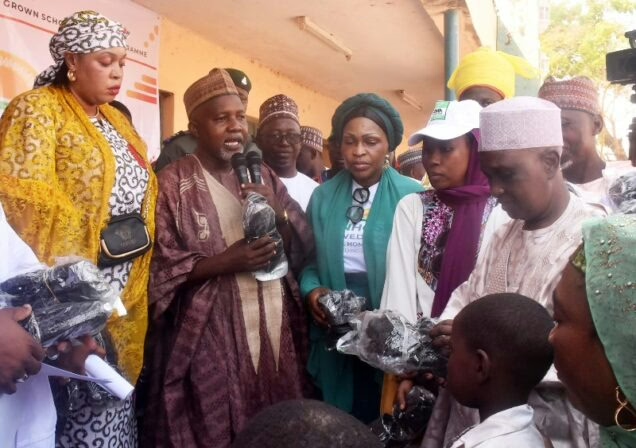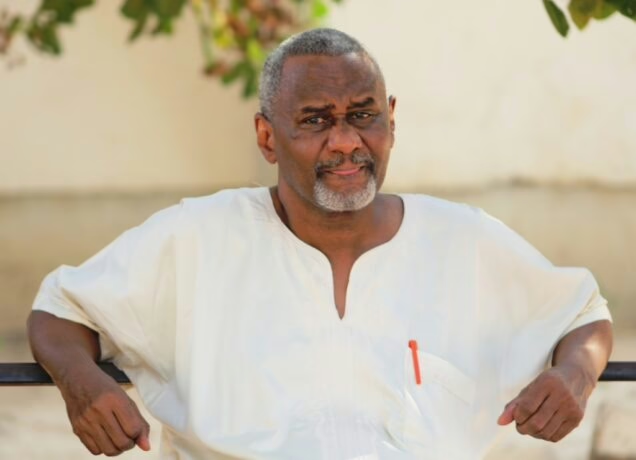By Enyeribe Ejiogu
Nigeria is seriously challenged by the invasive cancer of insecurity across the country, which is causing economic problems and social dislocation as well as hampering the operations of several organisations, leading to loss of lives and cumulative amount of financial resources paid out as ransom to kidnappers.


Imagine the benefits that could have accrued to the country if such funds had been invested in productive ventures like agriculture and other small scale enterprises.
In this interview, Mrs. Buduka Johnson, a much sought after security expert and consultant who runs EPSS Private Security Services Limited and General Secretary of Association of Licensed Private Security Practitioners of Nigeria (ALPSPN) proffers solutions on what the government, GSM networks and communities need to do.
Long before undersea fibre-optic cables in the were damaged earlier this year, Nigerians were experiencing shortcomings in the quality of network services. Fingers were pointed at criminal activities in certain locations. From your perspective as a security expert, could this be true?
I am from Ahoada West Local Government Area, Rivers State. I know exactly what it means to want to get something done but you can’t because you cannot reach the place. This particular issue about the GSM networks narrows down to security. That’s why I have said that there can be no sustainable development without peace in the region.
Recently, my company consulted for a project that had to do with critical national infrastructure. The people who sought our advice wanted to hold a stakeholder engagement. The budget estimate we gave them for Rivers State was more than five times what they had for Abuja. The reason was because of the large number of well armed security personnel needed to go to those places. It needs the community, the traditional rulers, the youths and the local government chairmen.
We identified stakeholders that would participate in the engagement. I can tell you that if you are going to see, probably a traditional ruler, the journey management would require heavily armed police escorts to get to those places. Right now, you are talking about a community where people cannot go to the farm to plant their yearly crops or even to harvest. They can’t even sleep at home, not expecting young men with guns coming to take the basic food in the house.
Let me give you an instance: last month some of my relatives who live in Ahoada (because they can’t stay in the village) decided to go to the village to harvest fish from their ponds. They had just finished harvesting the fish, when the boys with guns surrounded them and took away the whole harvest from them. You can imagine a grown up man, who cannot get food to eat. If you go to harvest palm fruits, it is the same experience. I am just trying to paint the reality of the situation. These boys are in charge, they have guns and they are in those bushes.
Now for a telecommunication company to go there, the first question to ask is this: what is the security of that infrastructure? First and foremost, it is the main mandate of the Nigeria Security and Civil Defence Corps (NSCDC) to protect such facilities. But the fact today is that the capacity to really take charge and protect the facilities is low. I believe the consultants were looking at how best they could engage the stakeholders for the project to be executed. The government has the responsibility to provide the enabling environment for this to happen. The GSM network operators make a lot of losses from theft and vandalisation of their facilities.
They are spending so much money on those things. I am not speaking on their behalf but because I am in the security business I understand and appreciate the enormous challenges they face, to stay afloat and keep their businesses running and operational. The people hired to guard the facilities are at risk as well. As a nation, we have to come up with a holistic solution to the challenge of protecting national strategic critical network communication infrastructure and other economic assets. The enormity of the challenge is beyond the companies, even if they wish to, the environment has to be enabled.
Now that you are talking about an enabling environment there is the community aspect or role in this. People have said that unemployment is a key driver of insecurity. Is that all the cause? Secondly, what needs to be done for people in communities to have a sense of ownership and be willing to protect communication facilities and other critical economic assets in their communities?
You have probably heard the expression, Silence the Guns. You see, when you create vulnerability it is already a threat. Education has a key role to play. The Niger Delta scenario is a situation where people are already agitated, and the oil companies probably have a global memorandum of understanding (GMOU) with the communities. Over time there has been no equity and fairness in terms of how these youths benefit from the things covered by the GMOU. Over time, these communities did not have good schools. Even now there are some villages that do not have schools. The lack of social amenities, schools, healthcare, etc, make them vulnerable. So when the guns came, the boys saw it as an opportunity to empower themselves to be in control of something.
This ugly and terrible situation burns in my heart as a burden, especially considering that we have yearly flooding in those areas. The floods leave people with less food and there is no social component to engage these people. The primary responsibility of the government is to make the life of the people bearable. The boys in the Niger Delta are angry. Right now many of them have turned into criminals, they are no longer agitators. For them, it is their way of being in-charge.
What can be done to ameliorate this, to protect national critical economic security assets, so that the networks can continue to operate in the communities?
There has to be political will to do it, to take the hard decisions necessary to achieve it. First, look at the tripod of how the economy, social and political factors can work together. They must work together, you can’t take one part away. You need good governance; there has to be a strategy to accomplish the change because right now, the mindset of the people is against trusting officials of government. Having the local government system work by giving autonomy to them, to ensure that there is accountability, and the justice system must be in place to ensure that people are brought to book. The police are supposed to be in those places we are talking about, they are not supposed to be isolated. Wherever you have ungoverned space that is what happens. There is failure of leadership and problem with followership. To a large extent failure of governance which started long ago is responsible for the insecurity in the country.
From the way I see it, even in their mindset people no longer have empathy for doing the right things. The government must exhibit political will to take the hard decisions that are necessary. Regional cooperation is very important in these areas. Developing a system where close-by states can work together in collaboration in such a way that if there is an overflow from one community it can be managed.
In the United States, private security firms/operatives have synergy with the local, state and federal police and are integrated into the system. Are Nigerian private security firms/operatives (who have direct access to the people and can provide useful intelligence) integrated into the national security architecture or is it just limited to the Federal Government’s armed services alone?
The national security architecture is the wholesome government programme to keep the country safe internally and externally, as well as to protect the territorial integrity of the country. You have the military at the border. Internally, you have the police, which is responsible for maintaining law and order among the populace.
When I look at the five-year national security plan, I see no role for the body of the private security operatives. The private security sector is regulated by the provisions of the 1986 Act. It is 38 years old and a lot of change has taken place in the security environment of the country. In 1986, we did not have Boko Haram, ISWAP, kidnapping for ransom and attacks on strategic and critical national economic security assets. Today, we are contending with all these threats and other crimes.
The private security sector has technology and trained people who are real professionals, and that is in the offerings of what they do for government and different organizations. They have systems and have built capacity in different ways, they are licensed by the Ministry of the Interior.
There are some operators in the private security space who are not under the licensed regime and this should not be. For instance, if you are a consultant or provide CCTV or electronic security you do not have to be licensed in Nigeria under the current law. That is very wrong. The government can gain from bringing the whole spectrum of operators in the private security space under regulations. Last year, we used the 16th anniversary of EPSS to draw attention to this anomaly in the private security sector. We articulated the need for proper regulation, repeal of the old Act and enactment of the new Act to cover the present day realities. Achieving this has been like a passion for our company. If you consider the facts on ground, the private security sector has large number of guards in each local government in the 774 LGAs in the country, posted by licenced security companies. The managers of the companies are well vetted by the Department of State Security Services and the licence is renewed every year. So, there is control and coordination in the sector. In essence, what the government needs to do is to sit down with the licensed practitioners and stakeholders find out what needs to be done to make the private security firms render better services, to complement what the main security agencies are doing, especially now when the country is facing security threats on multiple fronts. The private security sector has a lot to offer to the national security architecture. It is in the interest of the government to allow that to happen in ways that it would be monitored. Of course there has to be a command and control centre. If properly regulated, the private security sector can make enormous contribution to the GDP of the country. Security is a global challenge. The capabilities can be built more, and the value that is seen in the private guards will be beneficial to the country. If you leave vulnerable people in locations you create challenges for the public and the sector as well.
Right now due to the absence of stringent regulation, people don’t even pay for security services. I have companies that owe me more than 10 months of salaries for the security guards. This practice creates vulnerability and threats by keeping someone there and not paying for the services. When you have a value system that is based on the rule of law and a dependable judiciary, and people pay for services, things will be much better.
Regarding the issue of legislation, what efforts have been made to get the Act repealed, amended and a new Act enacted by the National Assembly?
First, we are under a department in the Nigerian Security and Civil Defence Corps (NSCDC). The fact is that the agency does not have the capacity to manage the affairs of the private security sector. The 2018 Regulation stipulates that every business in electronic security, consultancy and guard services must have a licence. Right now only companies that provide guards have licence. Even those who don’t have a licence are still operating. And there is no capacity to monitor, get feedback and stop such companies. So, they cause problems for the sector itself. In all honesty, there has to be an independent regulatory body for the private security subsector for it to blossom and achieve its aim. There have been efforts to get the amendment Bill put together just as there have been counter efforts to truncate the enactment of the proposed amendment because of pecuniary reasons. Right now, we see the NSCDC as our competitors because they are also engaged in activities we are supposed to be doing. We still have challenge regarding the appropriate legislation which has to come as an Executive Bill to liberate the sector. There are existing laws in Kenya, South Africa, Syria and Dubai, United Arab Emirates. We have been to Dubai to meet the authorities of SIRA to understudy their law and they are eager to work with us. They see value in us because we have numbers. We will be able to improve what we do in the areas of training, accreditation and standards.
Under the new leadership of the association, where I am the General Secretary, our President has been particular about getting us to move forward. Our goal is to have each guard to be licenced and have an identity card linked to his BVN and NIN (bank verification number and national identification number, respectively), so that if the guard commits a crime, he/she can be held liable. The Minister of the Interior has set up a committee for the reform of the private security sector.
There is rapidly growing need to protect the critical digital communication infrastructure. Operatives of the private security companies do not bear arms to protect communication facilities in remote outdoor places. Is there synergy between the police and the private security firms companies to enable them protect such facilities?
There is an arrangement between the armed services and the private security companies.
I think that the hostility in those places would make their arms look small. Of course you heard of the late Rivers State DPO who was beheaded. Just sending the operatives of NSCDC into such areas with their old guns, I am sure will not solve the problem. We need to take care of the social issues in those areas, and we need to be serious about it; it is not politics. The severity of the situation has deteriorated to the extent that people are no longer living.
What sort of life is it when you cannot afford to feed yourself because someone who is armed is occupying your land? There is no way to farm. Is that a life that someone would live? I consider it that you are dead. During the election, someone went to cast a vote. The boys who were there with guns opened the ballot to check the party the person voted for. In this country! There are levels you go to and you make a man feel that he is worth nothing. Do you know how the men who went to harvest fish felt after their food, their fish harvest was confiscated by someone with a gun? The boys can go to a family and shoot five people dead and nothing would happen. My area is a food basket of Rivers State. The youth constitute over 55 per cent of the country’s population. That is a lot of human resource. There is so much that can be done. In terms of agriculture, we can harvest four times a year, thereby creating
What can be done to begin the process of reversing the terrible situation?
I had earlier mentioned the three pillars that have to work together: the economy, social and political factors. There has to be deliberate programme with definable steps towards attaining the set benchmarks. So, it is about implementation. There has to be moral and cultural sensitization.
How can the GSM companies get extra security to protect telecom facilities?
Do you think it would be wise to create a structure to protect the outdoor facilities of GSM networks using the private security firms as the platform? In this regard, should the private security companies be integrated into the security architecture?
The private security firms are already involved in protection of network facilities. They are the guards without guns. The mandate given to the NSCDC is the protection of critical national infrastructure. What the government needs to do is to strengthen the department in the NSCDC responsible for protecting critical national infrastructure, and equip the operatives with all that they need to do the job effectively. The telecommunication companies have a key role in improving the sector, to enhance their operations. They incur a lot of losses through theft and vandalisation. The money they spend to replace the lost equipment should be invested to enhance the operations of the CNI department of NSCDC as a way of working with the government. They also need the private security sector to work together with them, to have the synergy.
Some communities already pay security levy to maintain communal guards. Network facilities are often located in the communities and the regular patrols of the operatives of the NSCDC and the private security firms will give the people in such communities a sense of security. In this regard, should the communities be expected to make financial contributions in any way?
The communities are key stakeholders in this kind of engagement. Public education is very important. People in communities have to be educated on the benefits of having these things. Sometimes, they might not see the benefits because they might feel that the network people are trying to exploit them. There are benefits in terms of improving those communities. The people in the communities must be able to see clear evidence of CSR projects that are done in the community. People’s mindset of distrusting government and organizations has to be changed.
It has been suggested that Nigerians in the Diaspora should contribute to improving security in their communities and getting youths gainfully engaged. What is your view?
Everyone in the civil society has a part to play in this initiative, ranging from the advocacy groups, private individuals, concerned citizens and civil society organizations. Then again, technology is key. I can stay in my office and see what is going on in my house. I can zoom in and see what my house-girl is cooking in the kitchen or putting in the food or what she is misusing in the house. So, basic technology is vital. Therefore, where the networks have facilities, they can create a connectivity that will enable the youths stay in those villages and create wealth. They can have access to the internet and education, including digital online training using solar energy to generate power for the rural training centres. I am looking at how they can have centres in these remote areas and be able to fulfill their destiny in such remote environments through the internet. If properly organized, the reversal of rural-urban influx can be achieved. I love to go to my village, and breathe fresh air. There will be more investment going to the villages. That is why I keep saying that without peace and security there can be no sustainable development. So we need to be able to understand how best to achieve this. Again, there is need to strengthen the social justice institutions. This is a key responsibility of the government.
From the perspective of a security expert, how do you think funding for this can be drawn?
I previously mentioned that the losses the network operators incur every year is more than enough to fund this initiative. You need to have a Public-Private Partnership (PPP) to run the initiative. The money can be used to develop those environments and the people will see it and be happy that a telecom company facilitated the project. It will ensure that their CSR projects are seen, felt and experienced. It will be good to have a stakeholder engagement so that the workshop can bring out the challenges the local government and communities have. Those will be captured in the budget of the networks.
The local governments must be accountable for every kobo of statutory allocations. The continued deprivations of these LGAs resulted to the problem we are having today.


